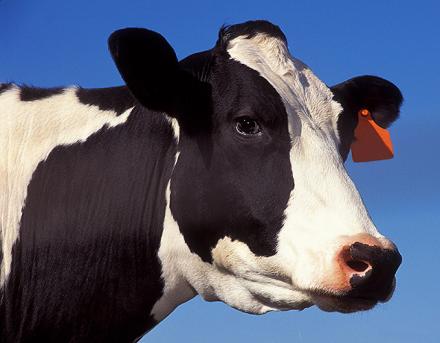ARS researchers in West Lafayette, IN, are examining how cattle, swine, and poultry are raised in an effort to improve their quality of life. To reach their goal, the researchers are focusing on three priority areas under modern farming conditions: pain or distress, animal health and productivity, and harmful effects caused by climate variability.

Modern farming refers to the use of technology to improve agricultural practices. Examples include the dairy industry's use of automated milk feeders for young calves and the use of monitors to track an animal’s movements. In both cases, data can note changes in behavior and help predict the onset of disease. Early detection means a sick animal can receive treatment sooner, reducing suffering, production losses, and the chance of the illness spreading. This approach could save treatment-related expenses and improve animal welfare.
Animal welfare science is a relatively young field that combines several scientific disciplines. One discipline that figures prominently is ethology, the study of animal behavior.
“We will continue to optimize animal welfare to maintain stakeholder confidence in animal agricultural practices,” said Jessica Pempek, an ARS animal scientist. “There is an ethical and moral obligation to ensure that animals under human care have a good quality of life, regardless of if they are used for companionship or food production.” Read more here.


